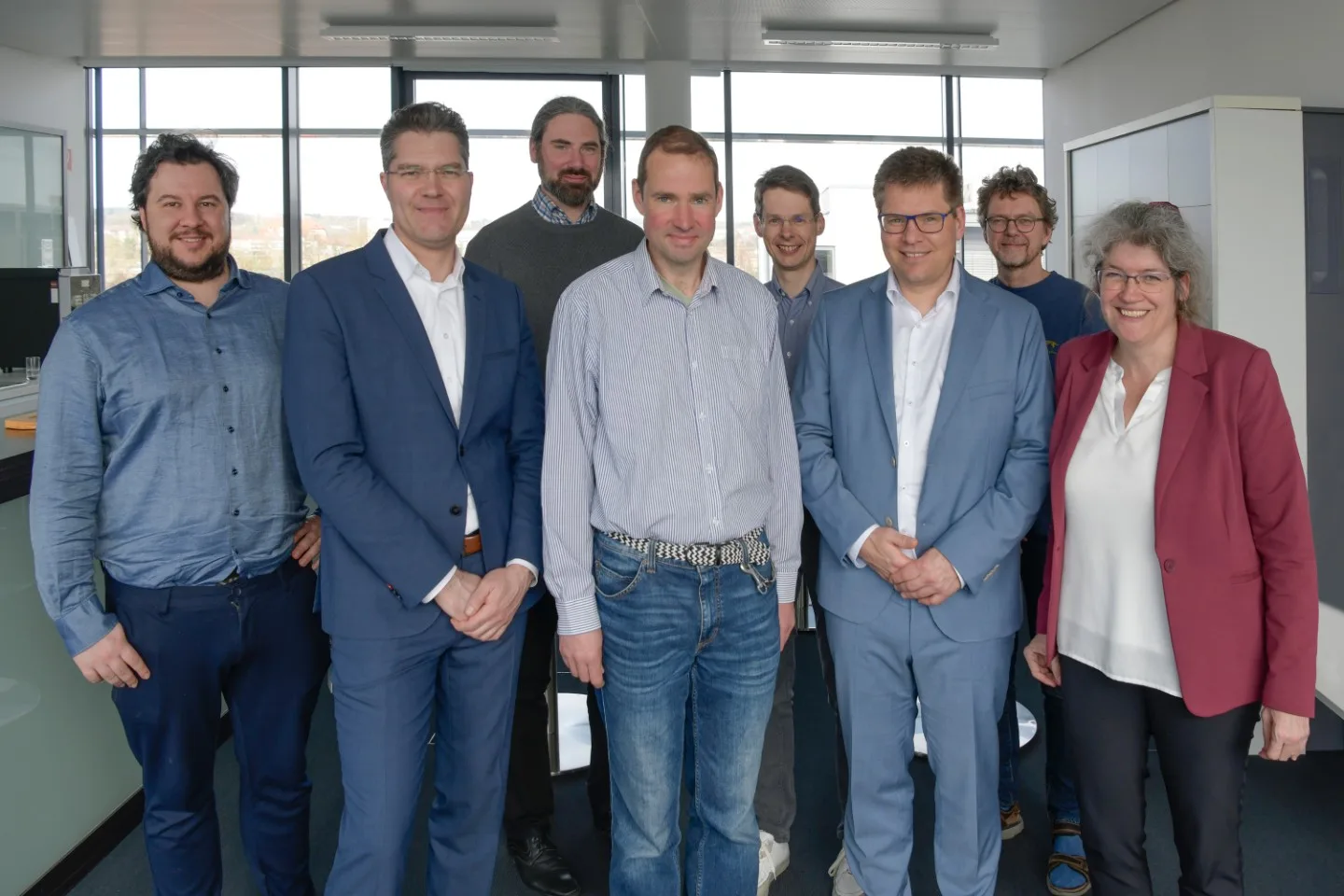The “Applied Quantum Computing” project, funded by the Rhineland-Palatinate state government and led by the Fraunhofer Institute for Industrial Mathematics (ITWM), has developed groundbreaking algorithms and methods for applications in various fields, including chemistry, financial mathematics, and image processing.
The project ends in April 2024 and has also improved coding and decoding techniques and established benchmarks for quantum hardware and algorithms. Doctoral students Thomas Cheng, Tom Ewen, and Alexander Geng have been researching quantum transfer learning, quantum architectures, and innovative encryption and compression techniques. The state has launched the “Quantum Initiative Rhineland-Palatinate” to continue this research.
Quantum Computing Advancements at Fraunhofer ITWM
The Fraunhofer Institute for Industrial Mathematics (ITWM) has been working on a project titled “Applied Quantum Computing” (AnQuC), which is set to conclude in April 2024. The project, funded by the Rhineland-Palatinate state government, has been under the supervision of the institute’s Quantum Computing working group and an industrial advisory board. The project has been successful in developing innovative algorithms and methods applicable in various fields such as chemistry, financial mathematics, image processing, and flow and material simulation.
The AnQuC project has made significant strides in quantum machine learning, improving coding and decoding techniques, and establishing comprehensive benchmarks for quantum hardware and algorithms. One of the notable advancements includes the development of novel models for coding image data. These models have effectively reduced the number of qubits required and made circuits less susceptible to noise.
The Next Generation of Quantum Researchers
The AnQuC project has also been a platform for doctoral students to explore the boundaries of quantum computing. Thomas Cheng, Tom Ewen, and Alexander Geng have been conducting research on quantum transfer learning, the search for quantum architectures, and innovative encryption and compression techniques. Their work has been instrumental in pushing the limits of quantum computing.
To further support this research, the state launched the “Quantum Initiative Rhineland-Palatinate” (QUIP) in 2023. The initiative has been successful, with 35 doctoral students and postdocs currently researching quantum topics, and all internships have been filled.
The Future of Quantum Computing at Fraunhofer ITWM
The AnQuC project has not only solidified its position in the quantum world but has also paved the way for future explorations. The participants of the project unanimously agreed that quantum informatics would increasingly come into focus in the future. The project has set a strong foundation for the institute to continue its exploration and research in quantum computing.
About Fraunhofer Institute for Industrial Mathematics ITWM
The Fraunhofer Institute for Industrial Mathematics ITWM, located in Kaiserslautern, is one of the world’s largest research institutes for applied mathematics. The institute is committed to advancing mathematics as a key technology and providing innovative impulses. The institute’s work is characterized by the implementation of mathematical methods and technology in application projects and their further development in research projects. The institute’s close collaboration with industry partners ensures the high practical relevance of its work.
The Fraunhofer-Gesellschaft, based in Germany, is a globally recognized organization for application-oriented research. The organization focuses on future-oriented key technologies and the utilization of results in business and industry, playing a central role in the innovation process. Founded in 1949, the organization currently operates 76 institutes and research facilities in Germany. With over 30,000 employees, most of whom are trained in the natural sciences or engineering, the organization works on an annual research volume of 2.9 billion euros.
External Link: Click Here For More

